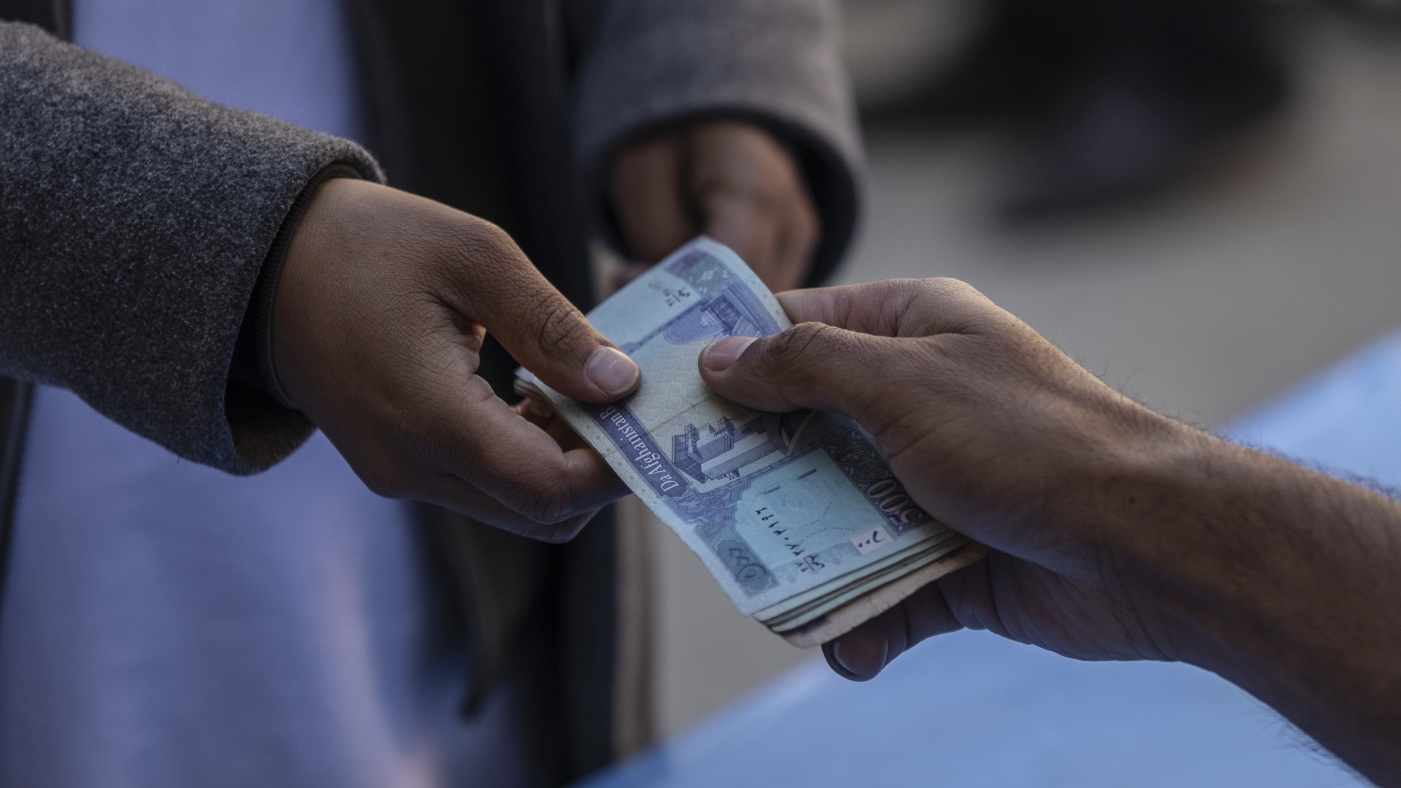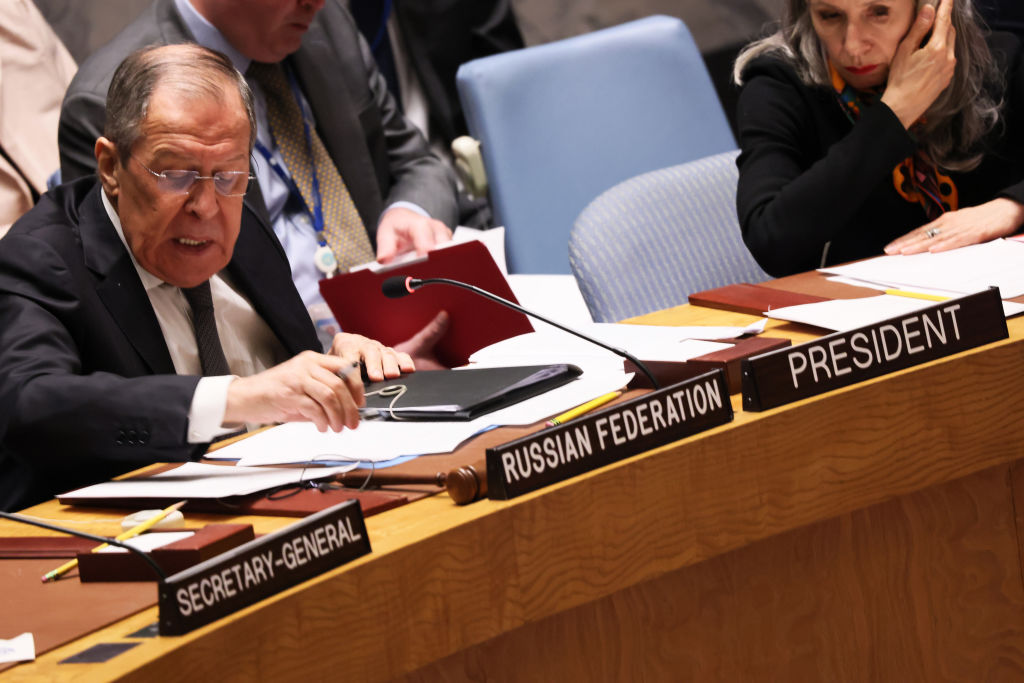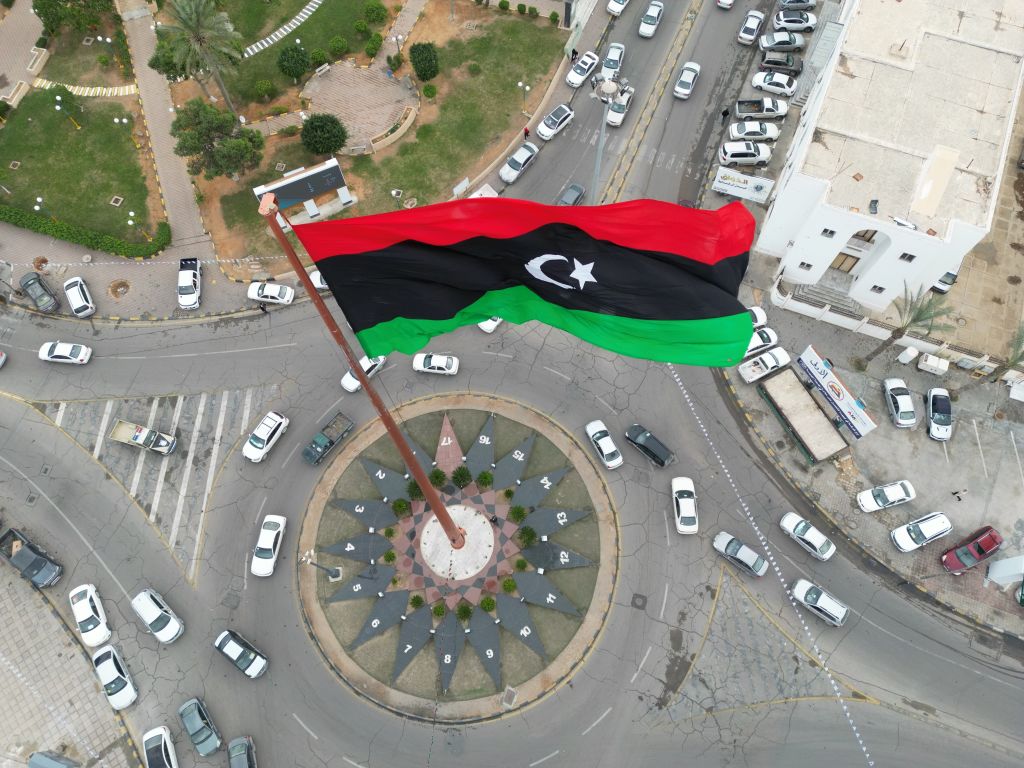Pros and cons of cash transfers in humanitarian aid
The number of people around the world receiving direct monetary aid has risen 240% since 2020

A free daily email with the biggest news stories of the day – and the best features from TheWeek.com
You are now subscribed
Your newsletter sign-up was successful
Providing cash transfers is an increasingly popular tool used by aid agencies and governments to help those caught in a humanitarian crisis.
Cash transfers are direct payments of money as humanitarian aid, usually given through physical cash, mobile money, smart card transfers or vouchers for local suppliers. This is given as an alternative to more “traditional” forms of aid such as food, blankets, medicine and shelter kits.
The use of cash transfers as a form of aid ballooned during the Covid-19 pandemic, with the number of individuals receiving monetary or voucher-based support increasing by 240% over pre-Covid levels, reaching approximately 1.1 billion people, equivalent to 14% of the global population, according to the World Bank.
The Week
Escape your echo chamber. Get the facts behind the news, plus analysis from multiple perspectives.

Sign up for The Week's Free Newsletters
From our morning news briefing to a weekly Good News Newsletter, get the best of The Week delivered directly to your inbox.
From our morning news briefing to a weekly Good News Newsletter, get the best of The Week delivered directly to your inbox.
1. Pro: support before disasters
Humanitarian relief agencies are used to providing aid in two ways: “helping people out after disaster has already struck, and helping them out by giving them stuff”, said Vox.
But cash transfers “turn that model on its head”. They effectively “offer people support before the shock hits, making them more resilient and limiting the economic and human damage when it comes”, said the news site.
In July 2020, pre-empting severe flooding in Bangladesh, the UN World Food Programme sent 23,434 households around $53 (£42) each a few days before the floods came. Over a million households were inundated during those floods, with health and food services disrupted.
According to a study published by the Centre for Disaster Protection in 2021, which examined the impact of these cash transfers, households who were given money were 36% less likely to go a day without eating, 12% more likely to evacuate household members, and 17% more likely to evacuate their livestock than households who didn’t receive cash.
A free daily email with the biggest news stories of the day – and the best features from TheWeek.com
And the benefits remained for months afterwards. Households who had received cash reported “significantly higher child and adult food consumption and wellbeing” as well as “ lower asset loss, [they] engaged in less costly borrowing after the flood, and reported higher earning potential”.
2. Con: effectiveness unclear
While cash transfers are effective at improving food security, their impacts on other import outcomes are “inconclusive”, said economists Iva Trako and Dahyeon Jeong at the World Bank.
They wrote that a small number of studies show “mixed evidence” on outcomes such as income generation, credit and savings, education, labour, gender-based outcomes and social cohesion. They argued that “context specificity” is therefore “crucial” in cash transfer programmes, as the “type of crisis and the broader context in which the crisis occur” are factors in the effectiveness and feasibility of such interventions.
3. Pro: efficient and cost-effective
Cash transfers are “often more efficient and effective than other forms of aid”, according to the European Civil Protection and Humanitarian Aid Operations, as they can provide those in need with “the means and flexibility to decide and prioritise their recovery”.
Cash transfers also reduce the logistical complexities in delivering other types of humanitarian aid such as food or other physical goods, meaning it can reach beneficiaries much more quickly. A study by the Center for Global Development found that cash transfers can be “25-30% more efficient than food aid”.
They are often simply cheaper than other types of aid, such as food, for several reasons. Cash “can often be transferred to bank accounts or mobile money accounts. It does not go off, and governments don’t have to worry about having the wrong type of cash in the wrong place,” wrote Dr Kate Orkin, a labour economist at the University of Oxford.
4. Con: structural problems
Cash assistance often only provides immediate relief and cannot combat the greater, structural issues that “cause poverty in the first place”, such as “discrimination, weak democratic governance and unfair international trade practices”, argued Heath Henderson, an assistant professor of economics at Drake University in Iowa, on The Conversation.
And that means the long-term effects of providing cash assistance are often “limited”. A recent study in Uganda looked at the impacts of cash transfers nine years after people were given money. “While the researchers found positive effects on employment and earnings after four years, these impacts virtually disappeared after nine,” said Henderson.
5. Pro: provides dignity
According to Michel Saad, the head of the UN Office for the Coordination of Humanitarian Affairs in Ethiopia, cash transfers not only help people buy locally, improving the local economy, but provide “more dignity” for those in need.
“Communities know what they need better than humanitarian actors,” Saad told The Guardian. “So when we give cash, it’s allowing them to be in charge of their own personal lives and say, ‘We believe we need to address this problem or that problem.’ Basically, it’s putting people at the centre.”
6. Con: open to corruption
Opponents of cash payments argue that recipients of aid money could misuse their funds on non-essential or luxury items, such as alcohol or cigarettes. There is even the risk that money could “fall into the hands of terrorist organisations”, a factor that has left some aid agencies particularly “skittish” about sending cash “lest they run afoul of government counterterrorism imperatives and lose their funding”, said Tufts Now.
But those fears are “largely unfounded”, according to Dan Maxwell, acting director of the Feinstein International Center. During the Somalia famine, people used the vast majority of the cash they received to buy food or repay debts they incurred from buying food before assistance was available, he told the site. “The overwhelming evidence is that money is used on things that people genuinely need.”
Sorcha Bradley is a writer at The Week and a regular on “The Week Unwrapped” podcast. She worked at The Week magazine for a year and a half before taking up her current role with the digital team, where she mostly covers UK current affairs and politics. Before joining The Week, Sorcha worked at slow-news start-up Tortoise Media. She has also written for Sky News, The Sunday Times, the London Evening Standard and Grazia magazine, among other publications. She has a master’s in newspaper journalism from City, University of London, where she specialised in political journalism.
-
 Conditions at Guantanamo Bay inhumane and cruel, UN investigator says
Conditions at Guantanamo Bay inhumane and cruel, UN investigator saysSpeed Read
-
 The pros and cons of menstrual leave
The pros and cons of menstrual leavePros and Cons Spain will offer paid time off for painful period symptoms: progressive step, legal minefield or tool for discrimination?
-
 Western diplomats slam Russia's Sergey Lavrov during UN meeting
Western diplomats slam Russia's Sergey Lavrov during UN meetingSpeed Read
-
 U.N. nuclear watchdog says 2.5 tons of uranium is missing from Libyan site
U.N. nuclear watchdog says 2.5 tons of uranium is missing from Libyan siteSpeed Read
-
 The pros and cons of van life and other unconventional housing
The pros and cons of van life and other unconventional housingPros and Cons Life on the road can be liberating but hygiene is only one of the challenges
-
 Pros and cons of gene-editing babies
Pros and cons of gene-editing babiesPros and Cons Controversial scientist says he feels “unease” about the future of children whose genes he edited as embryos
-
 Finland tops U.N. World Happiness Report for 5th year in a row, U.S. comes in 16th
Finland tops U.N. World Happiness Report for 5th year in a row, U.S. comes in 16thSpeed Read
-
 ‘Jamal Edwards gave a generation of young black artists the chance they needed’
‘Jamal Edwards gave a generation of young black artists the chance they needed’Instant Opinion Your digest of analysis from the British and international press


